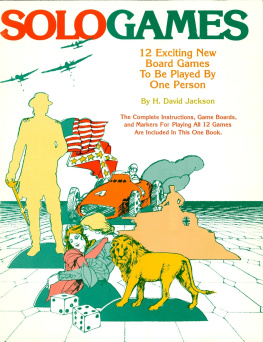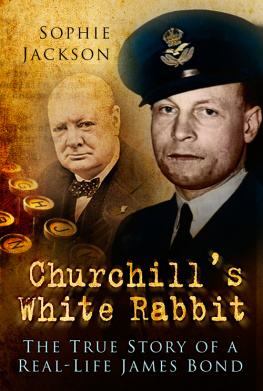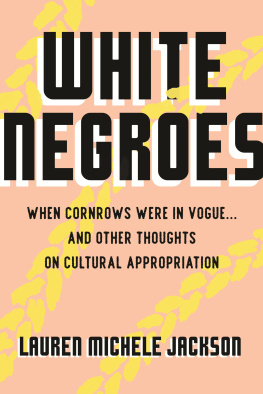The Fear Of Being Seen As White Losers:
White Working Class Masculinities And The Killing Of Stephen Lawrence
by David Jackson
The Fear Of Being Seen As White Losers:
White Working Class Masculinities And The Killing Of Stephen Lawrence
by David Jackson
A version of this essay was published in Sosiologi I Dag, 2002.
This ebook version is published in 2015 by
Five Leaves Publications
14a Long Row, Nottingham, NG1 2DH
www.fiveleaves.co.uk
Copyright David Jackson, 2015
ISBN: 978-1-910170-14-4
Table of Contents
Introduction
This essay is a longer version of an essay which first appeared in Sosiologi I Dag, Argang 32,nr.4, 2002.
Stephen Lawrence was murdered on April 22 1993 as he waited for a bus in Eltham, south-east London, with his friend Duwayne Brooks. The group of young white men shouted, What, what, nigger? as they killed the young black man.
A combination of police inadequacy (... professional incompetence, institutional racism and a failure of leadership by senior officers... (Macpherson, 1999, p312.)), the failure to bring anyone to justice for the crime, and the emotional bravery and persistence of Stephens parents, Doreen and Neville Lawrence, finally resulted in a public Inquiry chaired by Sir William Macpherson. That Inquiry led to an important period when the issue of racism in public institutions and the underlying reasons for police incompetence in the Stephen Lawrence case were placed high on the political and media agenda. (see Blair, Gillborn, Kemp and Macdonald (1999).)
Nearly ten years on from the killing of Stephen Lawrence, I would like to try and extend some of these anti-racist debates by taking a close look at some of the possible reasons why the suspects might have done what they did. But before we look at that, its important to contextualise the killing of Stephen Lawrence. His murder was a part of the rise of extremely violent racism in Britain (particularly in south-east London) and in Europe over the preceding decade. We need to explore the neglected links between Stephen Lawrences murder and the wider issues of English national and young white working-class masculine identities to more clearly understand the complex reasons for the killing.
Note that the five suspects have not been proved to have been Stephen Lawrences murderers, and I do not want to give the impression that it was undoubtedly them who carried out the stabbing. However the police surveillance video transcript has given us detailed evidence of the sub-culture of obsessive violence, fuelled by racist prejudice and hatred (Macpherson, 1999, p5) that permeated the everyday lives of the suspects. I agree with the Macpherson report when it says: If these suspects were not involved there must have been five or six almost identical young thugs at large on the night of 22 April 1993 to commit this terrible racist crime. (Macpherson, 1999, p5.)
Using the police surveillance video transcript and the Martin Bashir interview with the suspects on Tonight, we can see how the suspects make sense of their inner and outer worlds. In terms of jobs, income, reputation and style, the suspects lives are often characterised by uncertainty and anxiety, covered up by brave performances. They have concealed fears of being seen as white losers, and fantasised perceptions of being ruined or usurped by a young masculine black presence.
The suspects countered their insecurities about being viewed as failed men through attempting to re-constitute themselves as vigorous, hard and aggressively dominant, especially in their gendered selves and white English identities. So its possible to argue that the killing of Stephen Lawrence was a defensive bid to counter the imaginary threat of a black menace.
Interrogating White, Racialised, Embodied Masculinities
One way to make sense of the killing of Stephen Lawrence is through a careful analysis of racialised embodied masculinities. As a part of that analysis its necessary to interrogate some of the gaps, silences and invisibilities that surround white ethnicities and heterosexual embodied masculinities in our contemporary culture. We need to establish explicit links between national identities, race, sexualities and masculine embodiment.
White Ethnicities
One of the main barriers to understanding why the suspects might have done what they did is the invisibility of whiteness, and English whiteness in particular. Whiteness is so taken for granted in our culture that it doesnt seem to exist at all, or, as Richard Dyer suggests, whiteness is everything and nothing; at the same time. (Dyer, 1997) But there are positive signs that whiteness is being brought into focus as a social and historical phenomenon (Nayak, 1999), so to probe more deeply into the reasons for the murder we need to disturb the established norms of white male culture in England. A crucial part of this critical exposure of whiteness is to show that whiteness is a racialised identity with specific bodily relations. Whiteness is not an essentialised, homogeneous identity, but one which is constructed through relational, dynamic, power-driven social processes. The central racialised masculinities in England whiteness, Asianness and blackness (Frosh, Phoenix and Pattman, 2002) are socially produced through the power relations, differences, conflicts and hierarchical divisions between themselves in a wider social and political context. Traditionally and historically in England, taken-for-granted assumptions of white masculine superiority were sustained through the illusion of a cultural homogeneity, that white masculine norms were the only, proper standards of civilised humanity to aspire towards. These supremacist assumptions are now being sharply challenged and changed.
Today there is conflict, ambivalence and insecurity at the heart of white heterosexual English masculinities, which is experienced in bodily and sexualised terms. White mens bodies are threatened by loss, failure and national decline, but also by the disturbing difference and otherness of black bodies. Conversely, whiteness, as a psycho-social shaped identity, depends on non-whites for its sense of self. The social meanings of white English masculinities pivot on the existence of subordinated black masculinities.
From a broader anti-imperialist perspective, the legacies of colonialism are clearly visible within the internal hierarchies between white and black men. Triumphant white English masculine identities are constructed in opposition to racialised, sexualised and subordinated Others (in England, mainly black and Asian). This results in the racist myth of white men as superior, disembodied, civilised and rational; while black men are construed as savage, irrational and sensual. (Messerschmidt, 1998, p 134)
From an imperialist vantage point, white men viewed black men as only bodies, not minds. (Rutherford, 1997, p52) Black mens bodies were primarily seen as bestial, unclean, menacing and criminal. (Segal, 1990, p175) The unconscious longings and repressed fantasies of white men were also projected onto black mens sexualities. As a result, many black men were viewed as hyper-sexual beings, representing the ultimate in phallic embodiment (Nayak, 1997) for white, heterosexual men. And that hyper-sexual presence of black men, a product of white mens imaginings, is also what white men, especially in emasculating conditions, secretly desire for themselves.









